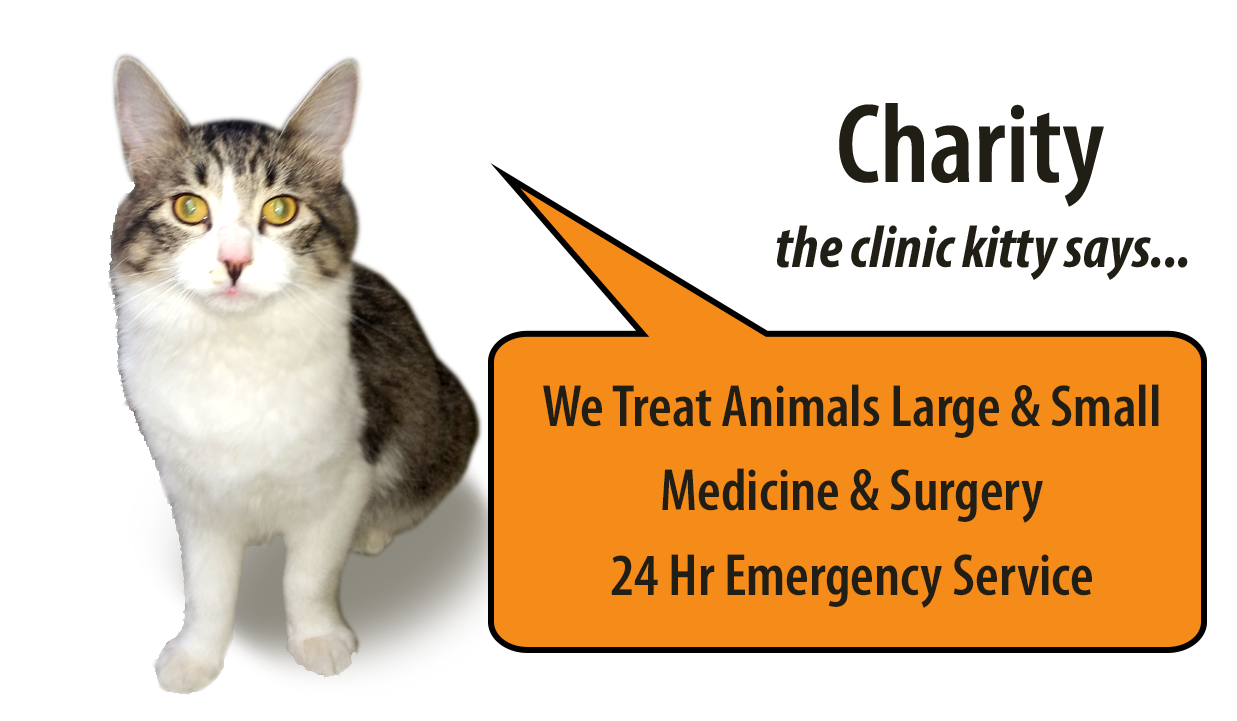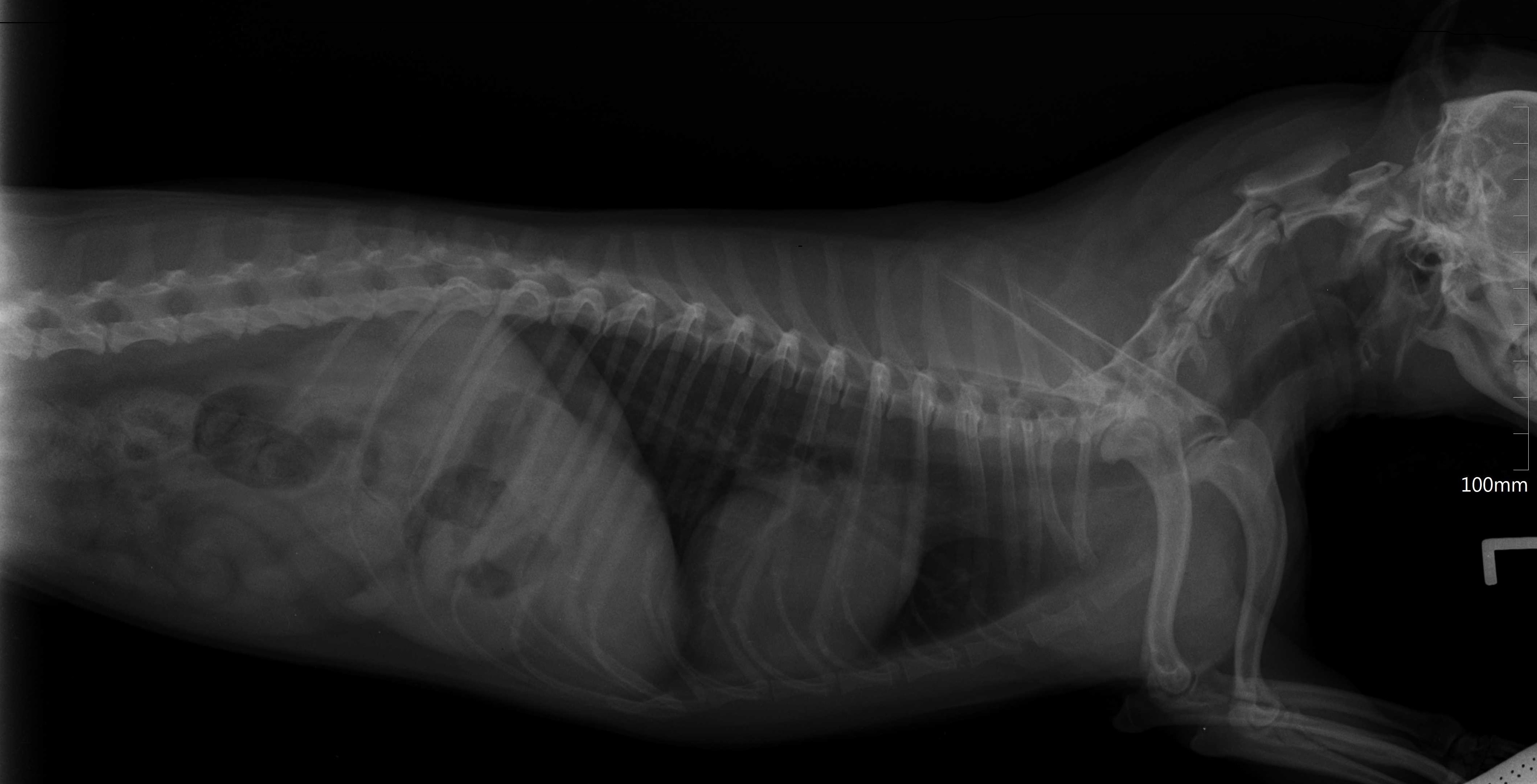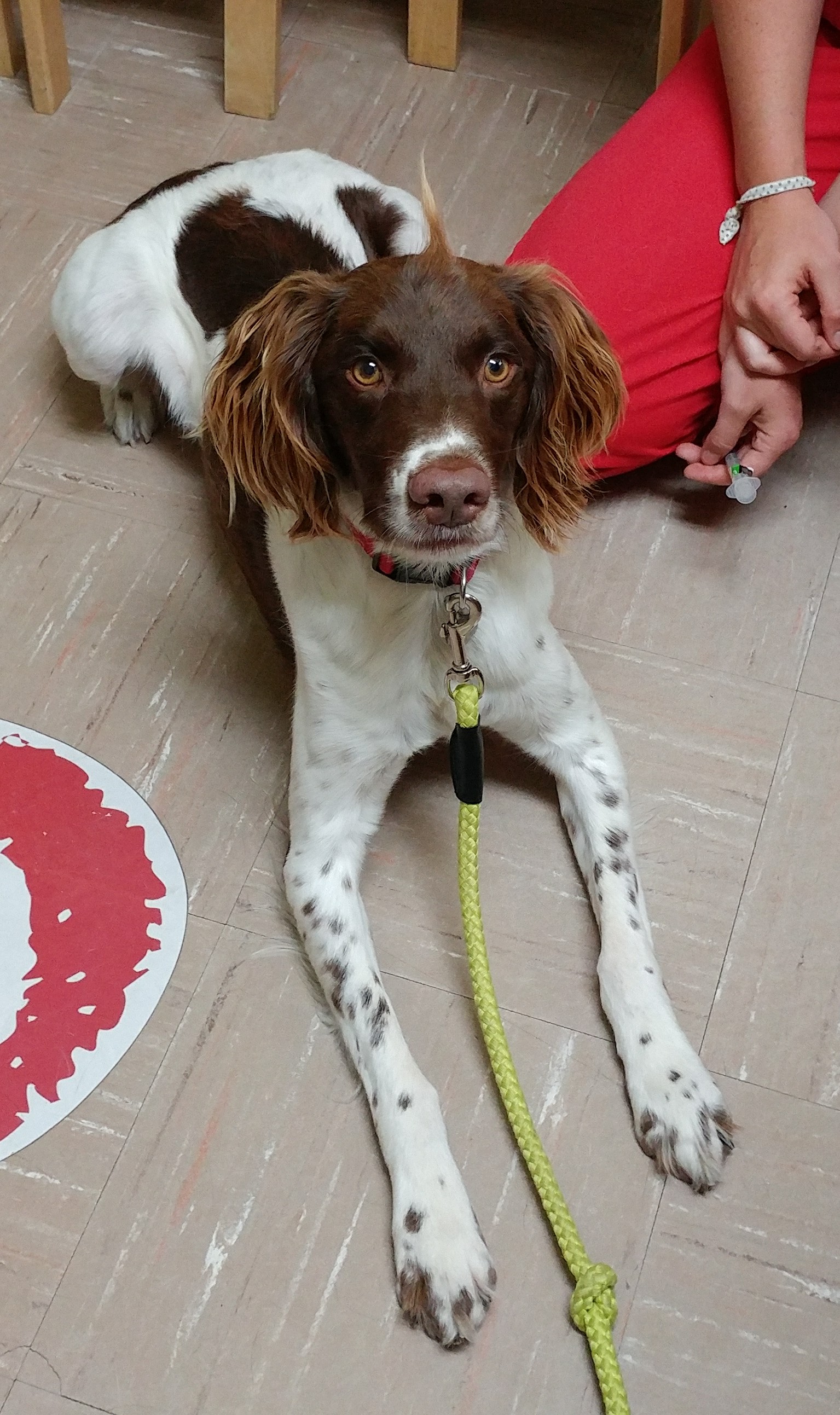

X-rays, or radiographs, are one of the most useful and common diagnostic tools in medicine. At Heartland Animal Hospital, we use X-rays to examine different parts of your pet's body - such as his or her bones, lungs, heart, abdomen, oral cavity, and more. Our digital X-ray machine provides us with clear, detailed images which can be manipulated for a better view on-screen. This technology helps us diagnose many medical and surgical conditions more quickly and more accurately. Because the digital X-rays are immediately viewable on a computer monitor, they are an invaluable resource in monitoring a range of conditions.
If we suspect your pet has a fractured bone, swallowed a foreign object, or is suffering from a heart problem, an X-ray can tell us what we need to know. Advanced diagnostic capabilities are an extremely important part of veterinary medicine, in part because we can't simply ask our patients what's wrong. Our investment in digital X-ray technology reflects our commitment to offer you and your pet the best, most comprehensive healthcare available.
When performing routine wellness examinations or diagnosing an illness, what our veterinarians can't see is as important, if not more important, than what they can. That's why we have a complete in-house diagnostic laboratory that allows us to perform a wide range of tests on blood, urine, feces, and tissue aspirates. Having these diagnostic tools at our fingertips allows us to offer faster, accurate diagnoses or assessments of your pet's health. We do utilize a next-day results laboratory for comprehensive bloodwork.
Test results can also help us in the early detection of diseases and other conditions affecting your pet's health and well-being. Diagnostic testing can detect heartworm disease, parvovirus, infections, feline leukemia, intestinal parasites, and many additional diseases and conditions that can go unnoticed in their early stages. Blood testing can show early evidence of diabetes, changes in liver or kidney function, or simply provide a baseline for future reference.
Laboratory testing provides information about your pet's overall systemic health without the need for invasive and expensive procedures.
Below are short descriptions of the most common laboratory tests performed:
Complete Blood Count (CBC): CBC testing measures the number of red blood cells, white blood cells and platelets in a sample of your pet's blood. The numbers of each type of cell provides information to help
diagnose anemia, infections and leukemia. A complete blood count can also help your veterinarian monitor how your pet is responding to a treatment.
Blood-Chemistry Panel (Chem Profile): A blood-chemistry panel measures electrolytes, enzymes and chemical elements of your pet's blood. Included in a chem profile are important components such as calcium and phosphorous levels, liver enzymes, kidney enzymes, glucose and total protein. These measurements help your veterinarian determine how your pet's organs, such as kidneys, pancreas and liver, are functioning. Blood-chemistry panels help diagnose and treat illness, as well as monitor your pet's response to treatment. A blood-chemistry panel is usually performed to screen for potential problems and risks before anesthesia is administered, and for routine monitoring in our senior patients.
Urinalysis (UA): Laboratory testing of your pet's urine can help detect the presence of substances that normally do not appear in urine, including protein, sugar, white blood cells or blood. Measuring the dilution or concentration of urine can also help your veterinarian diagnose illness. Urinalysis can be helpful in diagnosing urinary tract infections, diabetes, dehydration, kidney problems and other medical conditions.
Internal Parasite Screening (Fecal): Your veterinarian will examine your pet's feces under a microscope for clues about many different kinds of diseases, including difficulties with digestion, internal bleeding and pancreas disorders. Most importantly, a fecal examination can confirm the presence of intestinal parasites, including roundworm, hookworm, whipworm, tapeworm and giardia. A fecal examination is part of your pet's complete wellness examination.
I have recently relocated to the Columbia/Ashland MO area. One huge plus of living near Ashland, for us, has been finding Heartland Animal Hospital. Dr. Cuddihee, DVM and her capable staff have shown very professional, passionate and caring attention when examining, treating and boarding my dogs. They have taken the time to educate me in procedures and advancements in veterinary care. I feel no hesitation in leaving my animals in their care.
Brenda Adamovicz, "Reba"




.jpg)




©2025 Heartland Animal Hospital, LLC | All Rights Reserved | Site Map | Web Design by Headline / FBS
